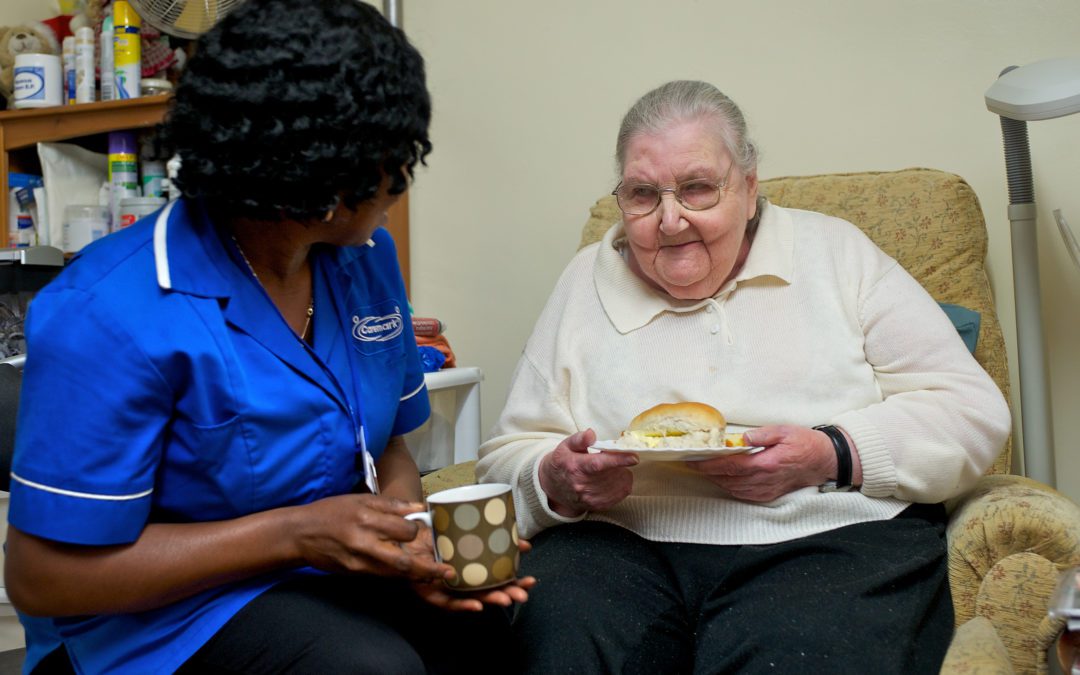Caring for a loved one with dementia can be rewarding and challenging. With the proper support and home care services, friends and family members can enjoy an active, fulfilling and happy life in their own homes. So why are home care services better for people with dementia, and how can you choose the right provider?
Best care for people with dementia
Enabling independence and choice is immensely valuable for people living with dementia, and the vast majority want to stay in familiar surroundings. Research by the Alzheimer’s Society found that 85% of people would prefer to stay at home as long as possible.
High-quality home care services are cost-effective and allow your loved one to live with dignity. People with dementia can enjoy a better quality of life with the support they need to continue with essential daily tasks and to live a full and active life.
How dementia patients benefit from home care services
Home care services have a raft of benefits for your loved one. Not only do they retain their independence and routines, but home care can open up a world of new possibilities. Home care can keep someone living with dementia safe in their own home while connecting them to the wider world.
Maintaining independence and routines
People with memory loss depend on staying connected with familiar surroundings, faces and even food. In turn, carrying out daily routines based on meaningful activities can significantly reduce the impact of anxiety.
Our care workers can support everything from daily self-care tasks to hobbies and outdoor activities, creating a positive environment. This type of care provides the consistency and continuity people with dementia need. In addition, it’s flexible enough to adapt to any changes your loved one might need to make in future.
Retaining memories
Staying in familiar surroundings has practical benefits like comfort and safety. But it also allows your loved one to live with family, pets and partners surrounded by familiar objects and photos. In turn, this can improve cognitive function, helping to reduce confusion and anxiety.
Staying safe
The risk of falls among people living with dementia can be up to eight times the average. Staying in familiar surroundings helps to reduce the risk of serious injury or prolonged hospitalisation. Removing trip hazards, adding grab bars and creating safe routes through the home can all help to preserve a family member’s independence and ability to move freely.
In addition, home care services provide one-to-one care that can help with mobility to keep your loved one safe.
On-hand companionship
Our devoted care team provided one-to-one care for people living with dementia. A suitable care worker can establish a close relationship with your loved one, engaging in meaningful activities and providing physical and emotional support.
Our care workers can ensure your family member gets out and about or connects to friends, family and support groups online. They’ll know when your loved one needs a helping hand or a friendly chat and when they need their own space and privacy.
Finding the right home care services
Becoming a carer can be daunting for family members, especially when you have other commitments, including work. That’s where home care services can prove invaluable. However, finding the proper care can be challenging. It’s an important decision, so you must ensure your provider matches your family member’s needs.
So, before contacting a care provider, list your loved one’s care needs and how you expect them to be met. Then call and screen out any providers that can’t meet or exceed your expectations.
Finding the right care worker can be one of the most challenging parts of the process. It can undermine your loved one’s home care if they don’t gel with their care worker. Therefore, it’s best if you’re well prepared for the assessment process, and it often helps to have a friend with you so you can get another impression.
Finally, be prepared to share as much as you can with your loved one’s care worker. Start by sharing practical information on healthcare and treatment for any other conditions. But it would help if you also familiarised the care worker with your friend or family member’s past achievements and fondest memories. Providing information on which memories are currently most vital is a valuable signpost so their care worker can start to establish a strong bond with your loved one.
At Caremark, we’ll help you every step of the way. We can support you with the home care services your loved one needs, so contact us today to book your free consultation.

